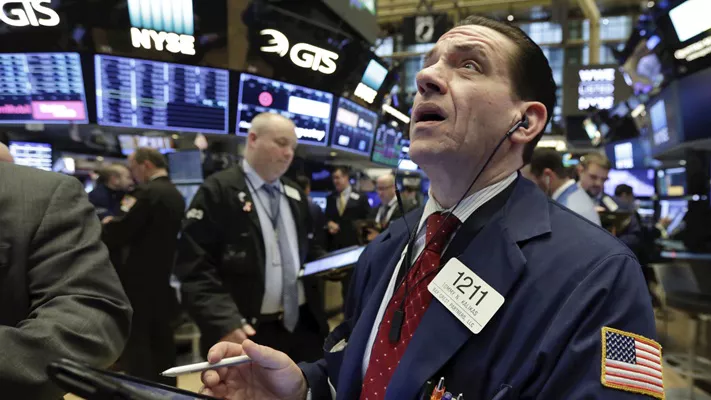Japan’s Nikkei stock index plunged nearly 5% on Friday, capping a volatile week of trading. Investors grew increasingly concerned about the economic fallout from the escalating U.S.-China trade war, as well as the impact of a rising yen, which is benefiting from safe-haven flows.
By the end of the trading day, the Nikkei had dropped 4.8% to 32,931.30 points, while the broader Topix index fell 4.7% to 2,419.67 points.
“Risk in equities is too high right now with such huge volatilities every day. The best thing to do, I would say, is to stay away from the market,” said Yusuke Sakai, a senior trader at T&D Asset Management.
The sharp drop came after the Nikkei had surged by 9% on Thursday, its largest one-day gain since August, following a 4% slump the previous session. Earlier in the week, the index had bounced back by 6% from a 1.5-year low set on Monday.
Sakai expressed concerns that Japanese companies may struggle to provide optimistic forecasts when they announce their outlook for this fiscal year later this month. “Equities rise as long as companies grow, but I am afraid that they may not be able to disclose their outlook, and even if they do, it could be conservative. That may push the Nikkei to a new low,” he said.
Meanwhile, all three major U.S. stock indexes closed sharply lower, losing much of the previous session’s gains. Growing concerns over the ongoing U.S.-China trade dispute overshadowed positive economic data and trade talks between the U.S. and Europe.
The U.S. dollar fell 1% to 142.88 yen, its lowest point since September 30, as investors sought safer assets. A stronger yen tends to hurt Japanese exporters, reducing the value of their overseas profits when converted back into yen.
Among the worst performers, Uniqlo-owner Fast Retailing dropped 3.29%, contributing the most to the Nikkei’s decline. Semiconductor-related stocks, including Tokyo Electron and Advantest, fell 2.8% and 8%, respectively.
Of the 225 companies in the Nikkei index, only three saw their stock prices rise. Baycurrent Consulting was the exception, surging 7.7% after it raised its annual net profit forecast and announced a share buyback.
Related Topics:


